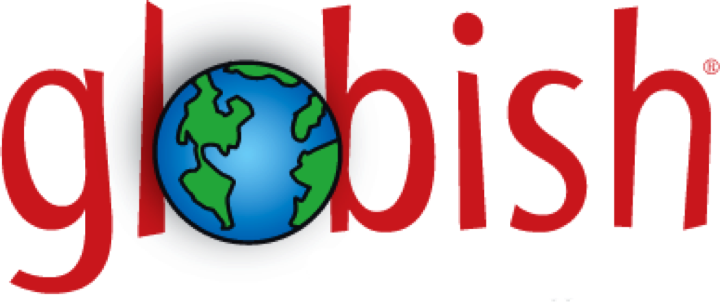全球语 沟通全世界
Chapter 5 The English Learners’ Problem…Can Be Their Edge - 第五章 英语学习者的劣势...可以是他们的优势
|
Some very expert English speakers take pride in speaking what is called “plain” English. They recommend we use simple English words, and to avoid foreign, borrowed words for example. So speaking plain English is not speaking bad English at all, and might even be speaking rather good English. Using unusual or difficult words does not always mean you know what you are talking about. In many cases, “plain” English is far more useful than other English. The term “Plain English” is the name of a small movement, but the term is most often used between native speakers to tell each other that the subject is too difficult. They say: “Just tell me in plain English!” |
一些非常专业的英语人士对他们可以说所谓的“简明”英语而感到自豪。他们建议我们使用简单的英语词汇,例如避免使用外来词语。所以,说简明英语并不意味着你的英语很差,甚至有可能是说好的英语。使用不常见的或难以理解的词语并不总是意味着你知道自己在说什么。在很多情况下,“简明”英语比其他英语要更加有用。“简明英语”最初是一个规模不大的运动组织的名称,但是这个词大多在英语母语人士告诉对方他们谈论的话题太难理解的时候使用。他们说:“用简单明了的英语告诉我就行啦!” |
|
It is very important, on the other hand, to speak correct English. Correct English means using common English words in sentences that have reasonably good meanings. Of course, everyone makes mistakes now and then, but a good goal is to say things in a correct way using simple words. This makes it easier to say things that are useful. |
而另一方面,说正确的英语也非常重要。正确的英语就是在句子中使用常见的英语单词表达恰当的意思。当然,每个人都会时常犯错,但是以正确的方法及简单的词语来述说事情正是我们美好的目标。这会使得描述实际价值的事情更加轻松。 |
|
Of course, we know that we say things well enough if people understand what we say. So we need to observe a level of usage and correctness in English which is “enough” for understanding. Less is not enough. And “more than enough” is too much – too difficult – for many people to understand. Most public messages – such as advertisements use fairly common words and fairly simple English. The messages often cost a lot so it is important everyone understands them. On television, time for messages can cost huge amounts so the English used is chosen very carefully. The American Football Super Bowl in the US has advertisements that are very easy to understand. The advertisers pay $2 000 000 a minute for their advertisements, so they want to be sure people understand! |
毫无疑问,如果人们理解我们所说的那就证明我们描述的很好。所以我们需要注意观察正确使用英语达到何种水平就可以“足够”让人理解。低于这个水平是不够的,而“绰绰有余”又太多了——因为很多人理解不了。大多数公共信息——例如广告,使用极其普通的词汇和相当简单的英语。发布这样的信息往往需要花费很多钱,因此重要的是要让每个人都理解。在电视上播放广告非常昂贵,所以使用的英语词汇需要精心挑选。在美国超级碗美式足球冠军赛期间播放的广告都非常容易理解。广告商们需要每分钟支付两百万美元播放他们的广告,因此他们要确保人们理解他们的广告词。 |
|
There is a level of English that is acceptable for most purposes of understanding. This is the level that Globish aims to show. As we will see in greater detail, Globish is a defined subset of English. Because it is limited, everyone can learn the same English words and then they can understand each other. Globish uses simple sentence structures and a small number of words, so that means you have to learn less. And it can be expanded easily when people choose to do this. |
这样的英语就达到了可以令大多数人理解的水平。全球语的目的就是要展示这样的英语。而我们之后会详细看到的就是全球语是一个轮廓分明的英语子集。因为它是有限的,所以每个人都学习同样的英语词汇,这样他们就可以理解对方。全球语使用简单的句子结构以及少量的词汇,也就是说你需要学习的量很少。而当人们选择这样做之后也很容易扩展。 |
|
The Globish word list has 1500 words. They have been carefully chosen from all the most common words in English. They are listed in the middle of this book. In the Oxford English Dictionary there are about 615000 entries. So how could 1500 words be enough? This book – in Globish – uses those 1500 basic words and their variations. |
全球语的词汇表中含有1500个单词。它们是作者从所有最常用的英语单词中精心挑选出来的。词汇表位于这本书的中间位置。《牛津英语大词典》中收录了大约615000个词条,那么1500个单词怎么能够用呢?《全球语》这本书就是用这1500个单词及其变体写成的。 |
|
This list of 1500, of course, will also accept a few other words which are tied to a trade or an industry: call them “technical words.” (Technical is a technical word.) Some technical words are understood everywhere. In the computer industry, words like web and software are usually known by everyone. They are from English or are made up, like Google. And in the cooking industry, many words are French, like “sauté” or “omelette”. |
当然,这1500个单词的词汇表会包含一些与贸易或工业相关联的词汇:我们称之为“专业术语”。(专业的就是一个专业术语。)有些专业术语所有人都明白。在计算机产业中,通常每个人都知道例如网络和软件这样的词。这些词有的来自英语,有的是编造出来的,例如Google(谷歌)。在烹饪行业,有许多法语词汇,像“煎炒”或“煎蛋卷”。 |
|
Globish also uses words that are already international. Travelers communicate using words like “pizza”, “hotel”, “police”, “taxi”, “stop”, “restaurant”, “toilets”, and “photo”. |
全球语同时也使用那些已经国际化的词语。旅行者们交流时使用的词语,例如“pizza(比萨)”,“hotel(宾馆)”,“police(警察)”,“taxi(出租车)”,“stop(车站)”,“restaurant(餐厅)”,“toilets(厕所)”,和“photo(照片)”。 |
|
1500 is a lot of words, because English has been a language where words “father” words. The children words of the first 1500 words are easy to learn. For instance, “care” is the father of “careful, carefully, carefulness, careless, carelessly, carelessness, uncaring, caretaker, etc…” It is the same with “use” and hundreds of other words. If you count all the fathers and their children you find over 5,000 Globish words. |
1500个单词的量很大,因为英语是一种词“生”词的语言。1500个基本词汇衍生出来的词语是很容易掌握的。例如,“careful(仔细的), carefully(小心地), carefulness(仔细), careless(粗心的), carelessly(粗心地), carelessness(粗心大意), uncaring(冷漠的), caretaker(管理员/看门人),等等...”就来自于“care(关心)”。“use(使用)”和其他几百个词汇亦是如此。如果你将基本词汇和它们的衍生词都计算在内,那么全球语的词汇量将超过5000个。 |
|
Experts say most native English speakers use only about 3,500 words. Well-educated speakers may know many more words but probably only use about 7,500 words. It is demonstrated that even native speakers with high education say 80% of what they have to say with only 20% of their word-wealth. This is only one good example of a universal law called the “Pareto Principle”, named after its Paris-born inventor. The Pareto Principle states: For all things that happen, 80% of the results come from 20% of the causes. So, 20% of the educated native speaker's 7500 word wealth is….1500. So with 1500 words, you may communicate better than the average native English speaker, and perhaps as well as the highly-educated one – for 80% of the ideas. For the 20% left over, in Globish you can use a definition instead. You will not say “my nephew”, as this could be too difficult in many non-English speaking countries. You will say instead: “the son of my brother”. It will be all right. |
专家认为大多数英语母语人士仅仅使用大约3500个单词。受过良好教育的人可能掌握更多的词汇,但很可能只使用7500个左右的单词。研究证明,即使是拥有高学历的英语母语人士也只是使用他们20%的词汇量就可以表达他们80%的思想。这是普遍规律“帕雷托法则”的一个很好的例子,这个法则是以在巴黎出生的创造者的名字命名的。帕雷托法则规定:对于发生的每件事情,80%的结果取决于20%的原因。那么受过教育的英语母语人士所掌握的7500个词汇的20%就是...1500个。因此,如果用这1500个词来表达80%的想法,你可以比一般的英语母语人士更好地与人交流,或许会与受过高等教育的人差不多。对于剩下的20%,你完全可以用全球语进行解释。你将不会说“我的侄子”,因为对于非英语母语人士来说这有可能太难了,你可以改口说:“我兄弟的儿子”。这样就行了。 |
|
But where did the 1500 words come from? |
但是这1500个单词是从哪里来的呢? |
|
Various lists of most-commonly-used English words have suggested the 1500 basic words of Globish. However, the value of a set of words should not be by the place they come from but how well we use them. |
全球语的1500个基本词汇是从许多最常用的英语词汇表中挑选出来的。无论如何,一组单词的价值并不应该在于它们的出处,而是在于我们如何使用它们。 |
|
Globish is correct English and it can communicate with the greatest number of people all over the world. Of course, native English speakers can understand it very quickly because it is English. And even better: they usually do not notice that it is Globish. But non-native English speakers do see the difference: they understand the Globish better than the English they usually hear from native English speakers. |
全球语是正确的英语而且用它可以与世界上的大部分人进行交流。当然,英语母语人士可以很快的理解因为这就是英语。而更好的是:他们通常不会注意到你说的就是全球语。但是非英语母语人士肯定能注意到不同:比起英语母语人士通常说的英语,他们对全球语的理解要更好。 |

